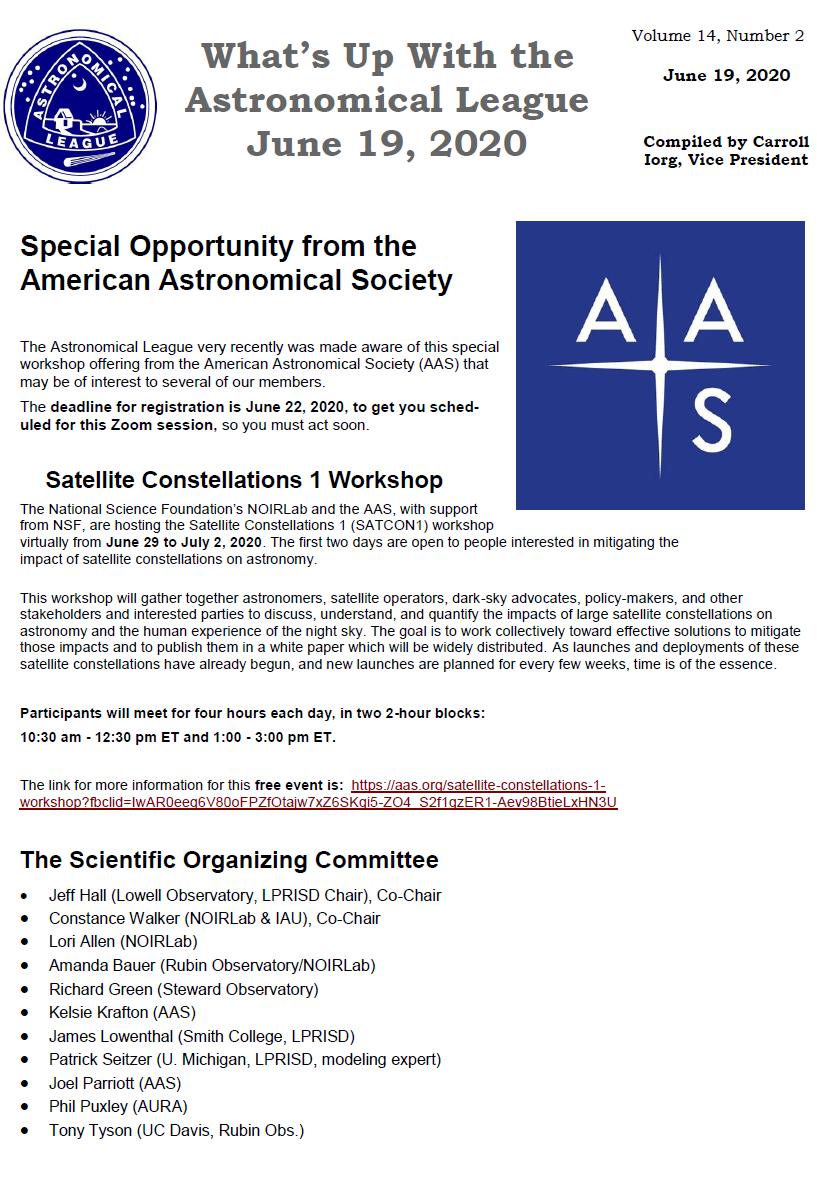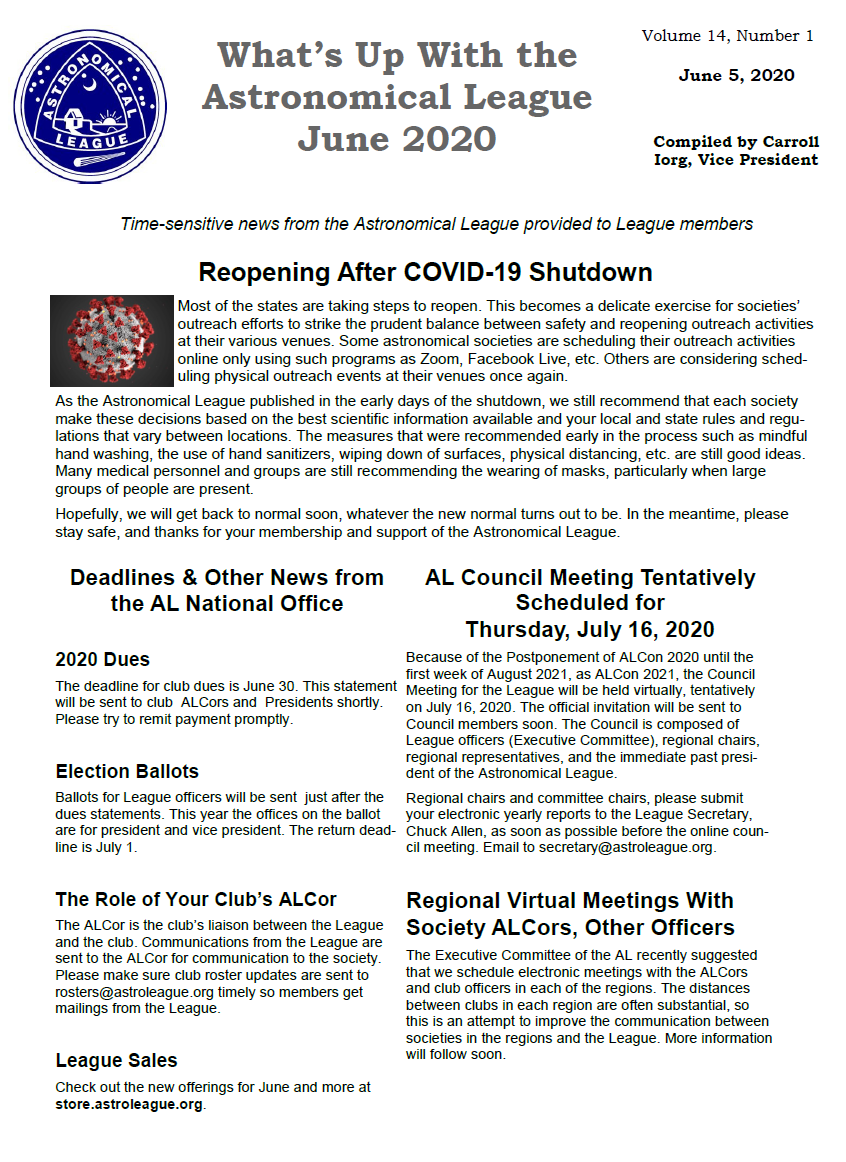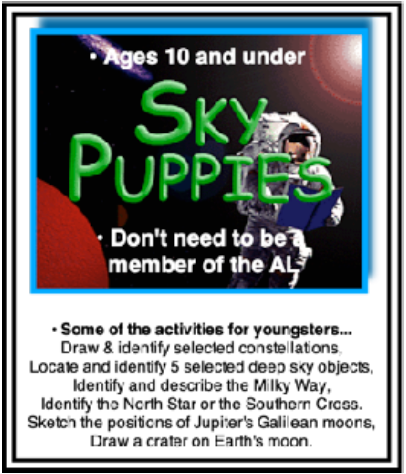Uncategorized
NASA’s Planetary Data System (PDS) Looking for Some Feedback (2020)
We partner with NASA on a number of our Observing Programs. Although this is not a formal partnership, it might be of interest to some of you. IF so, please jump on it. They would greatly value your help. – Aaron
We have something a little out of the ordinary – a request for your feedback from the team at NASA’s Planetary Data System (PDS) https://pds.nasa.gov/ . The PDS is where NASA spacecraft data and images are archived for access by researchers and the public. Some of you may be familiar with it already and some may not have explored it yet. Here is your opportunity to give your opinion and help NASA improve the PDS. See below. -Dolores
The Planetary Data System (PDS) is kicking off a User Study as a follow-on to the PDS Survey and next steps towards our Data Services Initiative. This Initiative and User Study are integral parts of enhancing the ways that we can serve you, our planetary science community. More specifically, we are looking for volunteers to help us get a better understanding of our how our community currently uses the PDS, but also how we can improve to meet your needs. The study will include individual interviews/discussions (~45-60 minutes), and some future help with playing around with some of the ideas we put together. We are looking for folks across pretty much any domain and experience level that interacts with the PDS including, but not limited to: Scientists, Tool developers, Data providers (R&A, missions, local data dictionary stewards), Educators, Students, International partners, Amateur astronomers, Discipline Node personnel, and NASA Management.
If you would like to help, please send an email to pds-operator@jpl.nasa.gov stating which of the above groups you fall into (this could be more than one), and we will reach out to plan next steps. Thank you in advance for your assistance and helping us better understand our community, so we can improve the PDS to meet your needs and further scientific exploration.
For more technical details:
abstract: https://www.hou.usra.edu/meetings/planetdata2019/pdf/7105.pdf
poster: https://www.hou.usra.edu/meetings/planetdata2019/eposter/7105.pdf
Observing Program Announcement: Observing Program Mentor Award (2020)
It is time to recognize those astronomers who have played a major role in mentoring one or more novice astronomers in our hobby of astronomy.
Now is the time to submit their name as a nomination for the Astronomical League’s Observing Program Mentor Award.
The website has all the details: https://test.astroleague.org/observing-program-mentor-award . Who do you know that deserves this award. Nominate them today!
Observing Program Announcement: New Herschel-II Object List (2020)
We apologize for any confusion this may have caused, but thank you to those who brought it to our attention. Thanks to efforts by the Coordinator, it is now all sorted out.
The new Herschel-II observing lists are now on the web page.
Observing Program Announcement: New Lunar Evolution Certificate (2020)
The Astronomical League is excited to announce our newest certification: Lunar Evolution.
Do you like to observe the Moon? Have you completed the Lunar Observing Program and are you wondering where to go next? How about a little more Lunar Observing. The Lunar Evolution Certificate may be jus the thing for you.
The certificate may be earned by doing visual observations or through imaging.
We hope you will check it out!
Observing Program Announcement: New Lunar Observing Program Coordinator (2020)
Please join us in welcoming Chuck Allen as the newly appointed Coordinator for the Lunar Observing Program.
We would also like to thank the previous Coordinator, Nina Chevalier, for her service to the Astronomical League as part of the Observing Program Division.
Observing Program Announcement: Sunspotter and Hydrogen-Alpha Now Have Imaging Certifications (2020)
Continuing our efforts to recognize that many of our members are seriously into imaging, the Astronomical League has added this as an option for two of our fundamental Observing Programs: the Sunspotter Observing Program and the Hydrogen-Alpha Solar Observing Program. The requirements are the same as they have been, but now an Imaging certificate may be earned. Certificates will have an “I” appended to the certificate numbers.
A member may earn these certifications both ways. Multiple certificates will be issued, but only one pin per Observing Program will be awarded. For more information, contact the Observing Program Coordinators.
Observing Program Announcement: Lunar and Lunar II Now Have Imaging Certifications (2020)
Recognizing that many of our membership are very seriously into imaging, the Astronomical League has added this as an option for two of our fundamental Observing Programs: Lunar and Lunar II. The requirements are the same as they have been, but now an Imaging certificate may be earned. Certificates will have an “I” appended to the certificate numbers.
A member may earn these certifications both ways. Multiple certificates will be issued, but only one pin per Observing Program be awarded. For more information, contact the Observing Program Coordinators.
Sky Puppies! (2020)
Engage Youth!
Do you have people in your life age 10 and under who you would love to introduce to astronomy, to start their voyage into the Universe? He or she could be a child, grandchild, or a neighbor. If so, then the Astronomical League has an Observing Program that is just what you need, Sky Puppy. This program explores the night sky at an introductory level, introducing concepts and objects to help young astronomers understand what they are seeing and to find their way among the stars. The Observing Program has a list of activities for the youth to accomplish, as well as useful information and stories. Thanks to a partnership with NASA, these workbook guides, certificates, and pins are available at no cost to members of the Astronomical League, as well as to non-members. This Observing Program is great for one-on-one experiences, but has also been used in class settings. If you would like more information on the Sky Puppy Observing Program, visit its website:
https://test.astroleague.org//al/obsclubs/skypuppy/skypuppy2.htm. To request one or more copies of the workbook guides, please send an email to the Coordinator, Aaron Clevenson, at aaron@clevenson.org. Be sure to include your postal mailing address.








